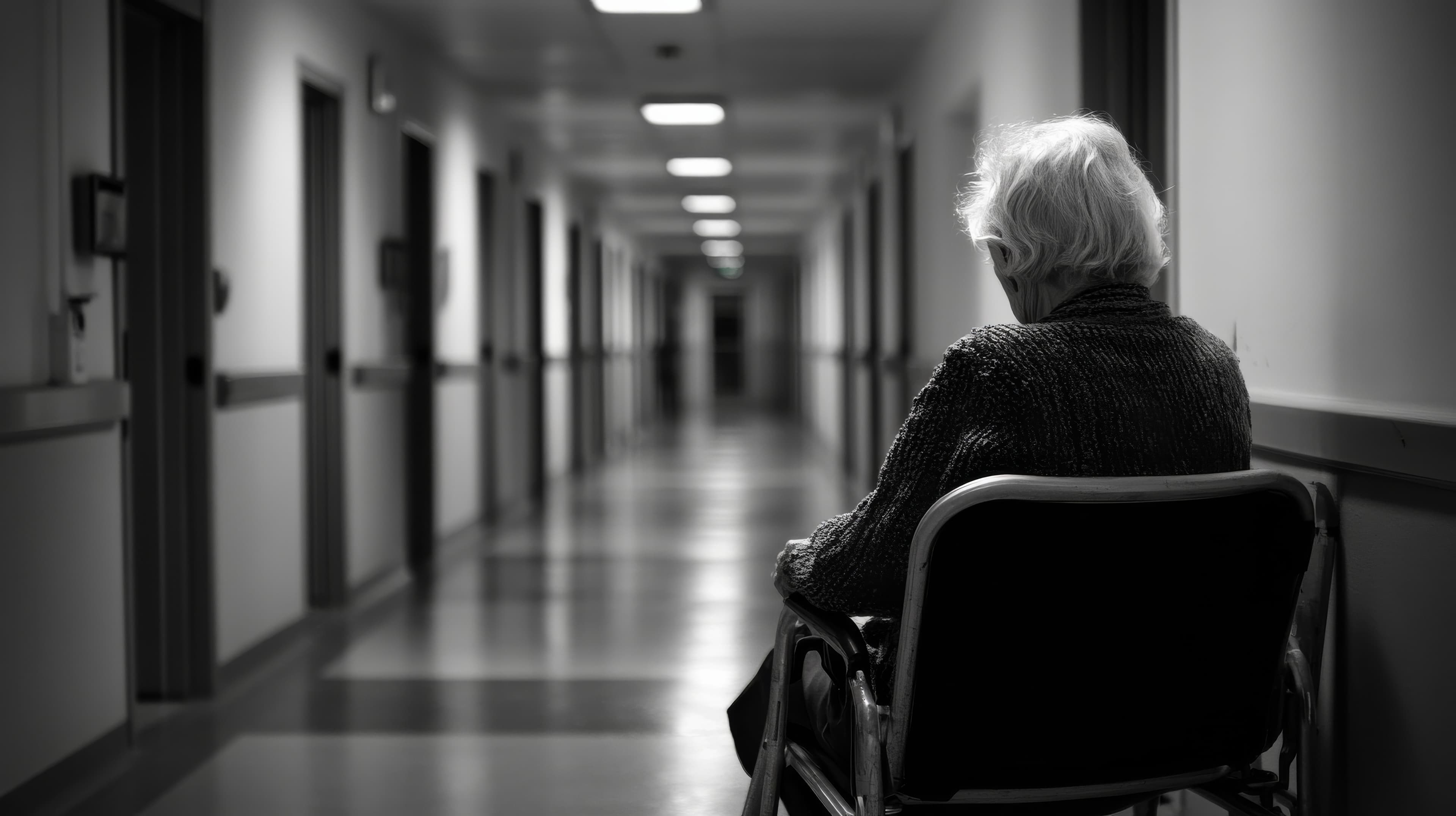
Nursing home abuse and neglect put vulnerable residents at serious risk, leading to malnutrition, dehydration, infections, and preventable injuries. When facilities fail to provide adequate care, residents suffer, and families are left feeling helpless. Lack of supervision, improper medical treatment, and unsafe conditions can result in devastating harm. Understanding the warning signs, knowing your legal rights, and holding negligent facilities accountable are crucial steps in protecting your loved ones. Learn how to take action and seek justice.
August 6, 2025
3 min
Deciding to place a loved one in a nursing home is never easy. You want to believe that your family member will be cared for with dignity and respect. Sadly, not every facility meets these expectations. That is why understanding the signs of nursing home abuse is so important. Michael Hill, an experienced attorney in elder law, has helped countless families identify warning signs and take action. This article will help you learn what to look for, what steps to take, and how you can make a difference in your loved one’s safety and well-being.
Abuse in nursing homes can take many forms. Sometimes it is physical. Other times it is emotional, financial, or even neglect. The first step in protecting loved ones is knowing the signs of nursing home abuse and being willing to act if something feels wrong. Abuse is often hidden. Many victims cannot speak up for themselves. Family members and friends are often the only advocates seniors have. By recognizing the red flags, you can intervene early and help prevent lasting harm.
Physical abuse is often the easiest to spot but can still be overlooked. Some key physical signs include bruises, cuts, or welts that do not match normal aging or accidental injuries. Watch for broken bones, sprains, or dislocations. Pressure sores or bedsores that do not heal can indicate neglect. Unexplained weight loss, dehydration, or signs of malnutrition may signal abuse. Sudden changes in mobility or frequent falls can be signs that supervision or support is lacking.
If you notice repeated injuries, or if staff explanations seem vague or inconsistent, do not ignore these warning signs. Take notes, ask questions, and insist on clear answers from caregivers and nursing home administrators.
Emotional abuse can be just as damaging as physical harm. Loved ones may show fear around certain staff or become withdrawn, anxious, or depressed. Sudden mood swings, changes in personality, or reluctance to speak in front of caregivers are all signs of potential abuse. If a resident seems isolated or is being prevented from seeing visitors, this can also be a red flag. Emotional abuse may also include yelling, humiliation, threats, or treating a resident like a child.
It is important to trust your instincts. You know your loved one best. If their behavior has changed dramatically without a medical explanation, do not dismiss your concerns.
Neglect happens when staff fail to provide necessary care. It is a common form of nursing home abuse and can be as dangerous as physical violence. Signs of neglect include poor hygiene, dirty clothing, or soiled bedding. Residents may not receive help with eating, bathing, or using the restroom. Untreated medical issues such as infections or dental problems are also concerning. A decline in cleanliness or frequent complaints about hunger or thirst should never be ignored.
Neglect can also lead to wandering, falls, or bedsores. If your loved one is left unsupervised for long periods or seems afraid to ask for help, there may be a problem with staffing or training.
Financial abuse is a growing concern in nursing homes. Some warning signs include missing money, valuables, or personal items. Unexplained withdrawals from bank accounts, new credit cards, or sudden changes to legal documents such as wills are serious indicators. Residents may receive bills for services they never used, or you might see forged signatures on checks or documents. Staff members who become overly involved in a resident’s finances are another cause for concern.
Families should keep a close watch on bank statements and legal paperwork. Talk openly with your loved one about their finances if possible. If you notice anything unusual, act quickly to investigate.

The overall environment in a nursing home can also provide clues about possible abuse. High staff turnover, frequent complaints from other families, or unclean facilities are warning signs. Pay attention to how staff interact with residents. If you observe rough handling, lack of patience, or disrespect, this may indicate deeper problems. Notice if residents are left alone for long periods or if call lights go unanswered.
A supportive, friendly, and attentive staff is a good sign, while cold or rushed interactions can signal underlying issues.
If you see the signs of nursing home abuse, take action immediately. Document your concerns with notes and photographs. Talk to your loved one in private to encourage honest communication. Bring your concerns to the attention of nursing home management, but do not stop there if you are not satisfied with their response. Contact local authorities, Adult Protective Services, or your state’s ombudsman. They have the power to investigate and intervene when necessary.
If you believe your loved one is in immediate danger, do not wait. Remove them from the facility and seek medical attention if needed.
Michael Hill has built a reputation as a trusted advocate for seniors and their families. He understands the challenges families face when dealing with nursing home abuse and neglect. Michael offers a calm, knowledgeable approach, guiding clients through every step from investigation to legal action. He helps families collect evidence, file complaints, and pursue claims when necessary.
An experienced attorney can often uncover patterns of neglect or abuse that are hidden from public view. Michael Hill works with experts to review medical records, interview witnesses, and ensure that every detail is addressed. His goal is not only to seek justice but also to create lasting improvements in care and safety for all residents.
Beyond taking action after abuse occurs, families and advocates play a key role in prevention. Visit your loved one often, ask questions, and build relationships with staff. Watch for changes in your loved one’s mood, health, or living conditions. The more involved you are, the less likely abuse will go unnoticed.
Michael Hill supports community education efforts, teaching families how to spot the signs of nursing home abuse and how to report problems early. Knowledge is the best defense against mistreatment.
Learning to recognize the signs of nursing home abuse is essential for every family with a loved one in care. Physical injuries, emotional changes, neglect, financial exploitation, and environmental clues can all point to serious problems. By staying alert and acting quickly, you can help protect your family member and ensure they receive the care they deserve.
Michael Hill stands ready to guide families through the process of identifying, reporting, and stopping abuse. With the right support, you can turn concern into action and make a difference for your loved one and for seniors everywhere.